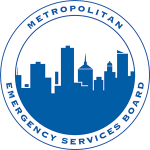The standards listed on this page govern only the metropolitan region of the ARMER system. Statewide system standards are available on the ARMER system website: State Standards.
1.5.2 – Revisions & Changes
1.5.3 – Variances & Waivers
1.8.0 – Moves Additions Changes
1.8.1 – BDA Systems
1.10.1 – Requesting Participation
2.9.1 – Subsystem Roaming
3.9.0 – Nationwide VHF and UHF Interoperability Channels
3.10.0 – Interop Channels and Talkgroups for Government Radios
3.11.0 – FEDCOM VHF Interoperability with Government Agencies
3.13.0 – Metro 800 MHz Conventional Nationwide Interop Channels
3.14.0 – Metro ME TACs
3.15.0 – Metro LSECs
3.17.4 – Non-emergent Event and Exercise Planning
3.20.0 – Metro METPHs
3.21.0 – Initial Communications Plan for Large Scale Events
3.22.0 – Use of Mobile/Portable Gateways to Connect to Fixed Network Operability Resources
3.24.0 – Metro Use of Control Stations
3.27.0 – Metro MRCC Talkgroups
3.28.1 – Metro Emergency Management Talkgroup – METEM
3.30.0 – METCOM
3.31.0 – Status Board
3.33.2 – Metro STR Transportable Tower Repeater
3.34.0 – Metro Region Cache Radio Standard Programming
3.35.0 – Metro National Weather Service Radio Operations
3.42.0 – Metro Use of Water Patrol Talkgroups-ME RVR HAIL/OPS
3.48.0 – COMU
5.2.0 – Metro Disaster Organization Access
5.3.0 – Regional Hospital Compact Access
5.4.0 – Hospital Access
5.5.0 – Non-Governmental Use of Emergency Coordination
6.3.0 – Site Lease and Utilities
6.5.0 – Prioritizing Capital Spending
6.6.0 – Aid Grants to Local Units of Government
7.2.0 – Response to Non-Compliance
7.3.0 – Appeals Process
Appendix 2 – Definitions and Acronyms
Appendix 3 – Master Fleetmap Matrix Example
Appendix C – Talkgroup Permission Letter Template
Radio Best Practices
Metro Region Encryption Best Practices Guide
Reports
MESB 2022-2024 Interoperable Emergency Communications Strategic Plan (IECSP)
Any questions or clarifications to the Metro ARMER standards or Best Practices please contact:
MESB Radio Services Coordinator at (651) 643-8398.
